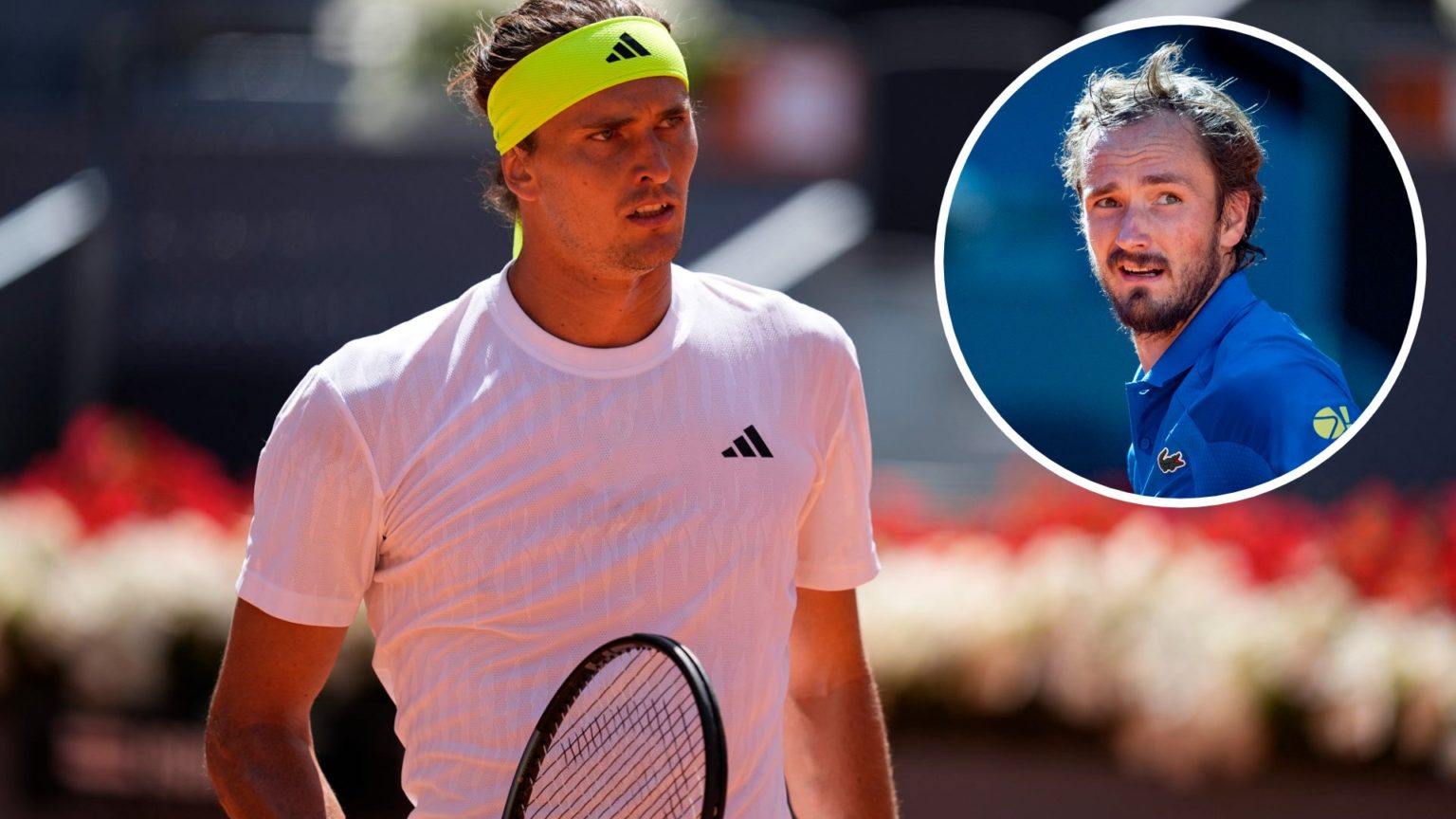
Daniil Medvedev, the enigmatic Russian tennis star, has never been one to shy away from candid observations, and his latest reflections on the sport’s evolution—and his rival Alexander Zverev’s place in it—offer a fascinating glimpse into the changing dynamics of professional tennis. Speaking after a hard-fought victory at the 2025 Madrid Open, where he advanced to the quarter-finals to face Zverev, Medvedev highlighted a seismic shift in the game over the past decade. His comments, laced with respect for Zverev’s adaptability and a nod to the sport’s new physical demands, underscore how tennis has transformed into a battleground where defense and athleticism reign supreme.
Medvedev, now 29 and ranked world No. 10, pointed to a fundamental change in how players approach the game. “I think so for sure what we see, why I don’t know, physical practice, tennis rackets, balls, almost everyone can defend now,” he said in his post-match press conference, reflecting on the sport’s evolution. Gone are the days when towering players relied solely on serve-and-volley tactics. Instead, modern tennis rewards versatility, with even the tallest competitors excelling in grueling baseline rallies. Medvedev used American Reilly Opelka as an example, noting, “You see Reilly Opelka, yes he runs a little bit worse than Carlos [Alcaraz] or maybe me, but he is still a good defender. He can run, he can rally.” This shift, Medvedev argued, has redefined the archetype of top players, including himself and Zverev, both 6-foot-6, who might have been pigeonholed as serve-and-volleyers a decade ago. “Guys of my height and Zverev’s height couldn’t rally at all, they were like serve and volleyers,” he added, marveling at how players like Zverev have adapted to the game’s new demands.
Zverev, the world No. 2 and a two-time ATP Finals champion, embodies this modern archetype. His powerful baseline game, anchored by a thunderous two-handed backhand and improved mobility, has made him a consistent threat across surfaces. Medvedev, who leads their head-to-head 12-7, acknowledged Zverev’s growth as a player, particularly his ability to compete in extended exchanges. Their rivalry, marked by tense battles like the 2024 Australian Open semi-final where Medvedev rallied from two sets down, is a testament to their shared evolution. “Zverev’s a tough opponent because he’s so solid now,” Medvedev noted, hinting at the German’s ability to blend power with endurance, a far cry from the serve-reliant giants of yesteryear.
The Russian also touched on his own efforts to adapt, particularly with the drop shot, a finesse shot he admits doesn’t come naturally. “I think drop shots are very important,” he said, contrasting his technique with players like Alcaraz and Lorenzo Musetti, who “can drop shot from the balls that you are not supposed to drop shot.” Medvedev’s self-awareness—he laughed about his and Karen Khachanov’s less audacious attempts—highlights his commitment to evolving, even if he’s “definitely not the best touch on tour.” His practice sessions with left-handers like Matteo Bellucci, in preparation for opponents like Musetti, show a meticulous approach to staying competitive in a sport that demands constant reinvention.
This evolution in tennis, as Medvedev sees it, is driven by advancements in training, equipment, and court conditions. Lighter rackets and slower surfaces have leveled the playing field, allowing players of all builds to engage in defensive warfare. For Zverev, this has meant transforming from a promising junior into a Grand Slam finalist, with near-misses at the 2020 US Open, 2024 Roland Garros, and 2025 Australian Open. Medvedev, who won the 2021 US Open, respects Zverev’s consistency, noting that their Madrid clash will test both players’ ability to dictate play from the baseline.
As Medvedev prepares to face Zverev, their rivalry—once marred by heated exchanges, like Zverev’s 2023 Monte-Carlo accusation of Medvedev’s “unfair” tactics—has matured. “A month later, it’s forgotten,” Medvedev said of past disputes, reflecting a mutual respect forged through 19 encounters. Their upcoming match, set against the backdrop of a tournament disrupted by a massive power outage, promises to showcase the modern tennis Medvedev describes: a game where athleticism, strategy, and adaptability define greatness. For both players, it’s a chance to prove they can keep pace with a sport that never stops evolving.
Leave a Reply